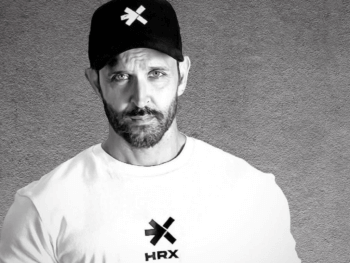
We talk to Satinder Sartaaj about The Black Prince, a sweeping historical epic spotlighting the under-told saga of a fascinating figure from India’s past.
He’s one of the most intriguing, but least explored figures in Indian history. Duleep Singh, the last Maharajah of Punjab. As a boy, in the mid-19th century, he lost his throne during the Anglo-Sikh War, and was exiled to England, baptized as a Christian and raised as a proper British gentleman, one who quickly became a favoured companion of Queen Victoria. But a fateful reunion with his birth mother years later awakened a yearning for the past, for the culture, faith and kingdom he was ripped away from. He’d spend the rest of his life battling, with mixed results, to reclaim them.
A man caught between countries, two identities, between the most powerful woman on Earth and the weight of a lost legacy — it’s a compelling role, to say the least. Little wonder it compelled an acclaimed artist to try his hand at a new form of expression.

“I was getting offers before, but I never really considered acting as a career, because my musical career is very dear to me,”explains Satinder Sartaaj, the popular folk singer and poet who’s making his screen debut in The Black Prince. “I have to be very selective. But when this character came, it was one of the most fascinating parts, a hidden character of our culture; people know about him but don’t know much about him.”
For a first-time actor it was also a daunting proposition, not the least of which because he would be sharing the screen with seasoned performers like Jason Flemyng as Singh’s adopted father Dr. Login, Amanda Root as Queen Victoria and the great Shabana Azmi as his mother, Rani Jindan.
Indeed, despite a crash course at a Mumbai acting school, “it was tough. It’s a different kind of performing art. Obviously, I am a performer, but poetry, composition and singing is in me, while acting is an entirely different world. To portray someone that large and iconic and fascinating, especially a British Maharaja . . . English was my third language, so to do these monologues with actors like Jason Flemyng and Shabana Azmi [was intimidating].”

Fortunately, their shoot in England turned out to be a “very friendly atmosphere,” with the cast bonding while chatting in the makeup chair and a co-star who shall remain nameless pulling up one of Sartaaj’s videos on YouTube and breaking into dance.
Also putting the fledgling star at ease was director Kavi Raz, shaping his performance from behind the camera. “I give entire credit to Mr. Kavi Raz, because he is an actor himself and he knows how to train a non-actor and how to explain the sense of a character,” Sartaaj reflects.
For his part, Raz absolutely feels that his leading man rose to the challenge.
“He really embodied Duleep Singh from the very first shot. It’s almost like, as we were revealing him layer by layer to get to the real heart and soul [of this man], we were putting layers on Satinder, and he was transforming himself into this character. For me to watch, it was a pretty amazing experience.”

The Black Prince can aptly be described as a passion project for the writer-director, who was keen to shed light on the life and exploits of the titular monarch, which hasn’t been under-represented on-screen.
“It’s a very important part of Sikh history, and it shaped India,” Raz says. “India’s independence movement is always in the spotlight, but one thing no one knows about is that [Singh was one of the first people] to raise the voice for independence. But besides that, it’s really a story about a man coming to terms with his reality . . . which I think we can all relate to.”
It’s also a story that spans a lifetime. And Raz admits that cutting it down to just two hours was his biggest challenge (if all goes well, he’s considering doing a four-part TV miniseries to let this grand, sweeping saga breathe a little bit). For Sartaaj, the scope of the story, combined with the logistics of the filmmaking process, presented a different challenge — specifically, shooting scenes out of order.

“I always thought a film goes start to end, and they shot it like this. [But instead] in the morning I’m 50, at noon I’m 35, in the evening I’m 55 . . . you’re changing the texture of your voice, the language . . . you’ve got to be very obedient, listen to your director. When you are portraying from 15 to 55, you have to [adjust] your body language appropriately.”
“But it went beautifully,” he’s quick to add. “I am missing those shooting days.”
So should we take that as a sign that he’s officially caught the acting bug? Will the name Satinder Sartaaj become a fixture on multiplex marquees the world over?
“You know, I’m concentrating on my music career obviously,” he chuckles, “but let’s see [on opening night] how it goes.”
The Black Prince is now playing in select theatres across North America.
Main Image Photo Credit: Brillstein Entertainment
Matthew Currie
Author
A long-standing entertainment journalist, Currie is a graduate of the Professional Writing program at Toronto’s York University. He has spent the past number of years working as a freelancer for ANOKHI and for diverse publications such as Sharp, TV Week, CAA’s Westworld and BC Business. Currie ...














































































































